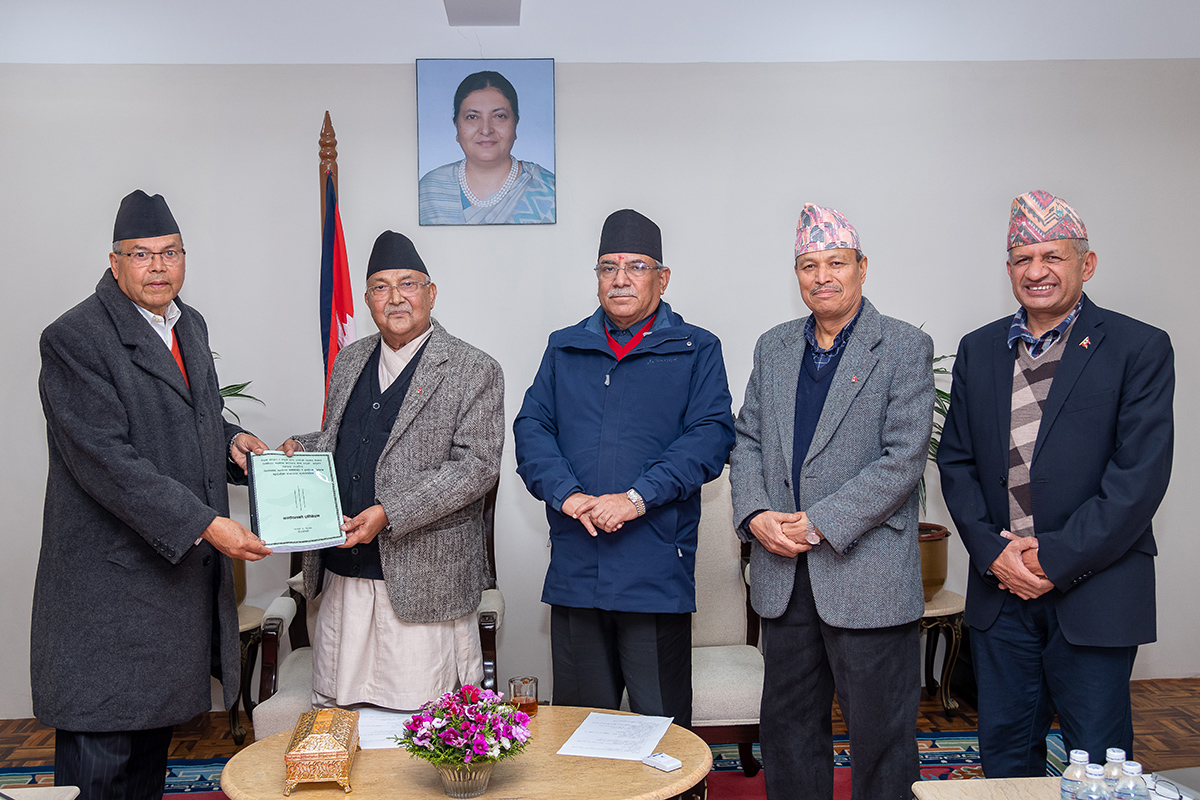KATHMANDU: A task force formed by the ruling Nepal Communist Party (NCP) to study the Millennium Challenge Corporation (MCC) has concluded that it is the part of Indo-Pacific Strategy (IPS).
The task force under the coordination of senior leader Jhalanath Khanal and Standing Committee member Bhim Rawal and Foreign Minister Pradeep Kumar Gyawali has suggested amending 11 points of the Compact.
“The Indo-Pacific Strategy appears to be an important part of the US National Security and Defense Strategy, and the MCC program appears to be part of that strategy,” reads the point no 14.6 of the report readied by the task force.
The task force said in the report that although the MCC’s program appears to be linked to economic planning, it appears to be closely linked to the US government’s security goals and programs
Although it is natural that the provisions of the agreement will be effective in implementing the programs under the agreement and the laws of the countries concerned will not be enforced to that extent, the task force suggests that it should ensure that other legal provisions of Nepal are not affected.
The report also suggests that erroneous provisions that current and future US law will be enforced should be corrected.
Similarly, the report also suggests that MCA-Nepal should be operated and directed by the Government of Nepal and not directly directed and operated by the MCC.
Giving due place to the rights and role of the Government of Nepal, it should not be restricted in any way and all the activities of the program should be within the scope of participation, monitoring and inspection of the Government of Nepal, the report suggests.
Gyawali’s dissent
Gyawali, a member of the task force, who is also the foreign minister, disagreed with the report and expressed his differing views in 15 points. He concluded that there was exaggerated publicity about MCC.
“Exaggerated and misleading publicity that US military intervention will happen in the name of protecting the project, camps will be set up, the geopolitical conflict will be created, Nepal’s agreements with other neighboring countries will be disturbed and claim that the agreement is more ‘treasonous’ than any other agreement are intended making the relationship between the two countries bitter,” he has said.
The MCC’s Nepal Compact is mainly designed to strengthening Nepal’s energy sector, improve regional energy connectivity, and control transportation costs to encourage growth and private investment. Nepal and the United States signed a $500 million compact to spur economic growth and reduce poverty in Nepal on September 14, 2017.









Comment